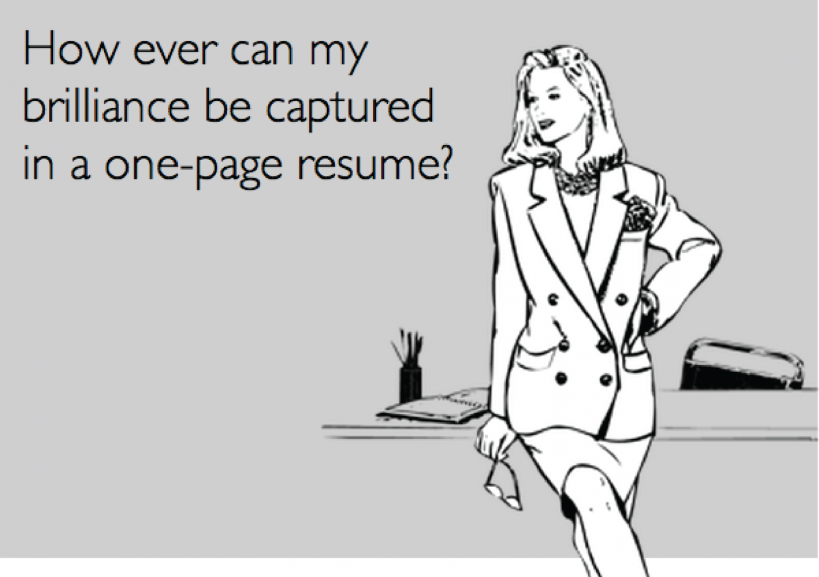Can't Get a Job Without Experience?
Ready to launch your tech career, but getting stuck on the "Experience" section of your CV? Read on, let me help you figure out what to write in that section.
Here's just a few REALLY SIMPLE things you can do to tell employers what they want to know, and move your CV to the top of the pile.
Inject your potential & passion and future job focus into your CV.
So many CV's are backwards-looking. While it's great that you were captain of the tiddlywinks team in primary school, and we love the fact that you've been babysitting the neighbours' kids since you were 13, actually... employers want to know what you can do for THEM.
Yes, we know you don't have much (or any) relevant professional experience. But that doesn't mean you're the sum of your past, either.

(Note: in New Zealand, we expect your CV to be 2-3 pages long, not a "1 page resume")
Set the scene with an "About Me" section
Consider adding a personal statement at the top of your CV, that's like a 1 paragraph version of your cover letter. Talk about your specific future-job-related skills and passions, and what you'll bring to your potential employer. Remember that you don't want to make the employer work too hard to figure you out. Make it really clear what kind of role you're looking for, and why they should hire you. Avoid general statements like "I want to work in the IT industry" or "Ready to implement what I've studied". Emphasise your personal attributes, values and skills that you can bring to your future team. Be convincing!
Showcase your "Skills"
Consider adding a skills section highlighting what you've learned or practiced (yes, it's ok to include stuff you've done as part of your studies). Make sure it's not just a random list of things, you need to include context and evidence in your CV to prove that you can actually do this stuff. Be focused and (as much as possible) be specialised. Remember if you're adding your CV to your SoT profile, it's going to be seen by lots of different employers, but you can position yourself as someone who's passionate and motivated for a specific type of role or type of team or work environment.
Think broadly about your "Experience"
We definitely advise you to include all your past work and experience, but most of the time that's not going to be relevant for your first industry job. You might like to include volunteer work, which will demonstrate transferable skills. You can also add projects as part of your "experience" section, or create a new section called "Projects". If these are more relevant than your paid work experience, put them first! Projects could include substantial academic projects or volunteer or side projects you've done in your spare time. REMEMBER: be up front about whether they were paid or unpaid. Also, if they were a team project during your studies, then be very clear about what your role was on the team.
If you haven't got any projects yet, that's ok! Maybe you're in your first year of study, maybe you're a full time student with lots of family responsibilities or working a part time job that means you don't have time for projects. No problem. Think about how you can show evidence of your tech skills in your CV. What have you learned as part of your formal or informal study? Why are you interested in this area?
Put the most important stuff on the first page
Consider re-ordering the information in your CV, think about what the employer wants to read about. What matters to them? (HINT: it's not your grades or your non-industry-related work experience, though your less-relevant work experience should be on the 2nd page). The 1st page of your CV is prime real estate. There's a good chance the reader won't get past the first page on their initial scan! Make sure they can quickly identify your relevant skills & experience, and make sure that you showcase the passion and motivation you'll bring to the role.
Career-switcher? Awesome:
If you're a mature student or someone with a past career, this is great news, and there's definitely opportunities for you in intern & grad roles! You will have to be even more focused on telling your story on the 1st page. Make sure you highlight relevant and transferable skills from your past career(s).
Come to our CV bootcamps & Clinics!
We'll go through this in more detail during our bootcamps and CV clinics. Details will be posted on our Events page as soon as they're scheduled). Get lots of people to give you feedback on your CV - everyone will have a different opinion, and you can take on board a range of advice and perspectives.Remember your CV is a marketing tool, and YOU are the product ;-)